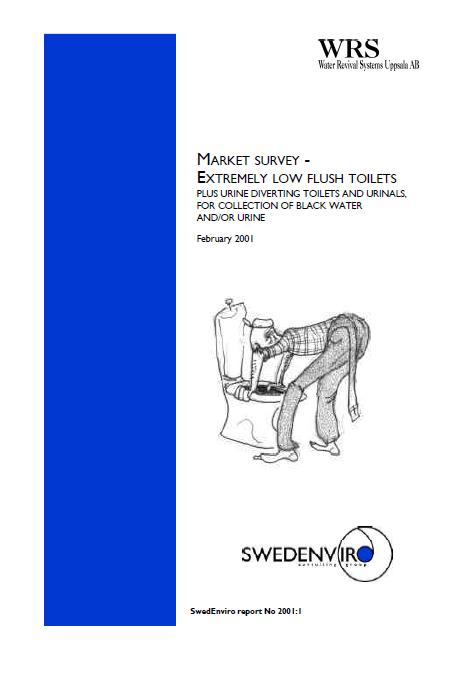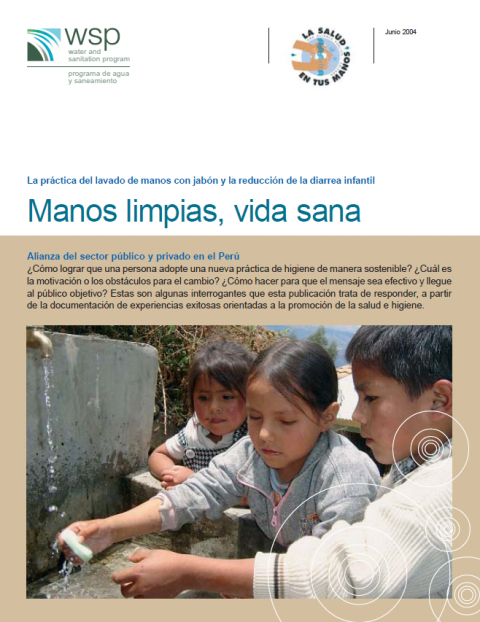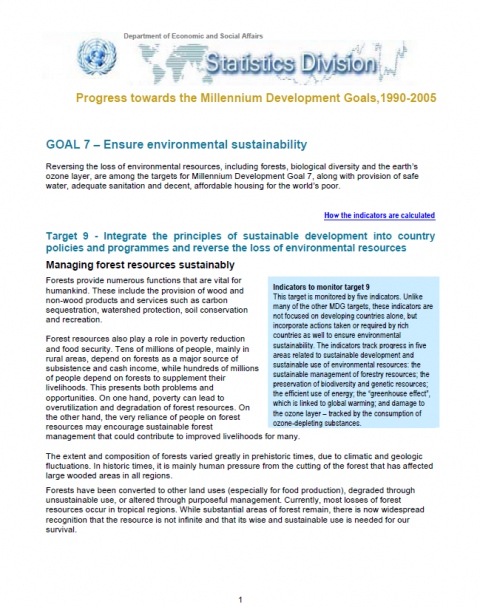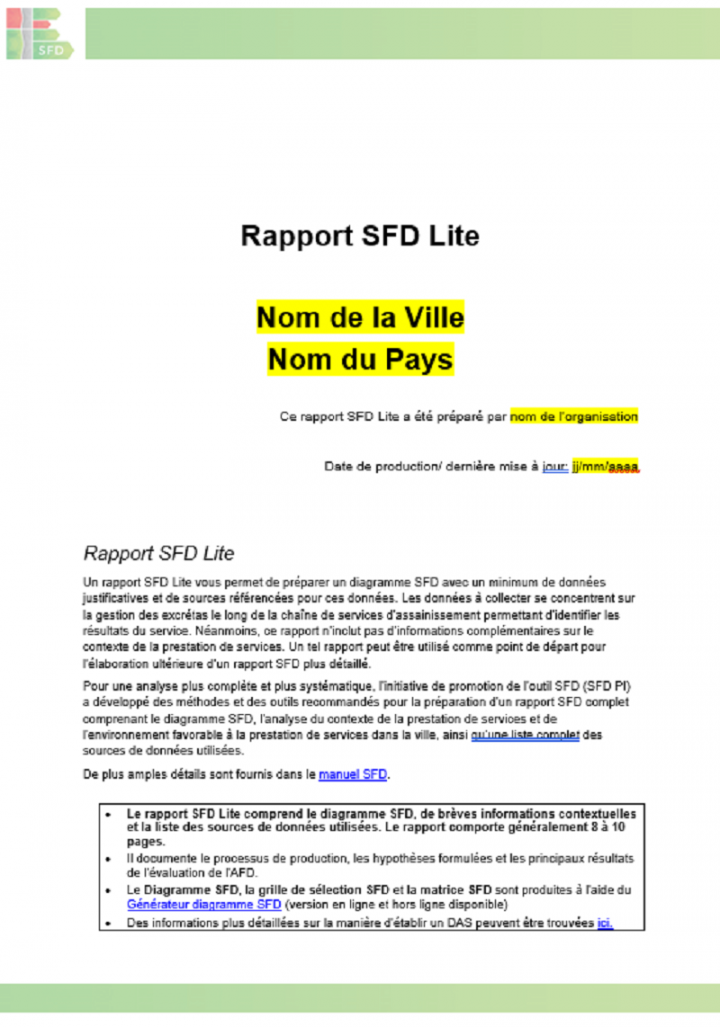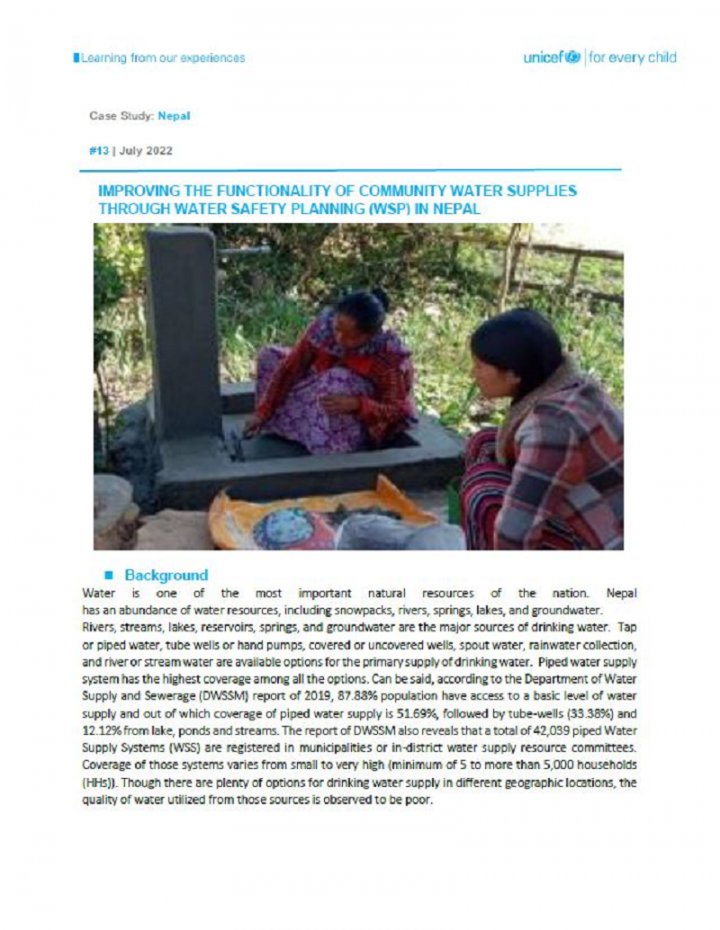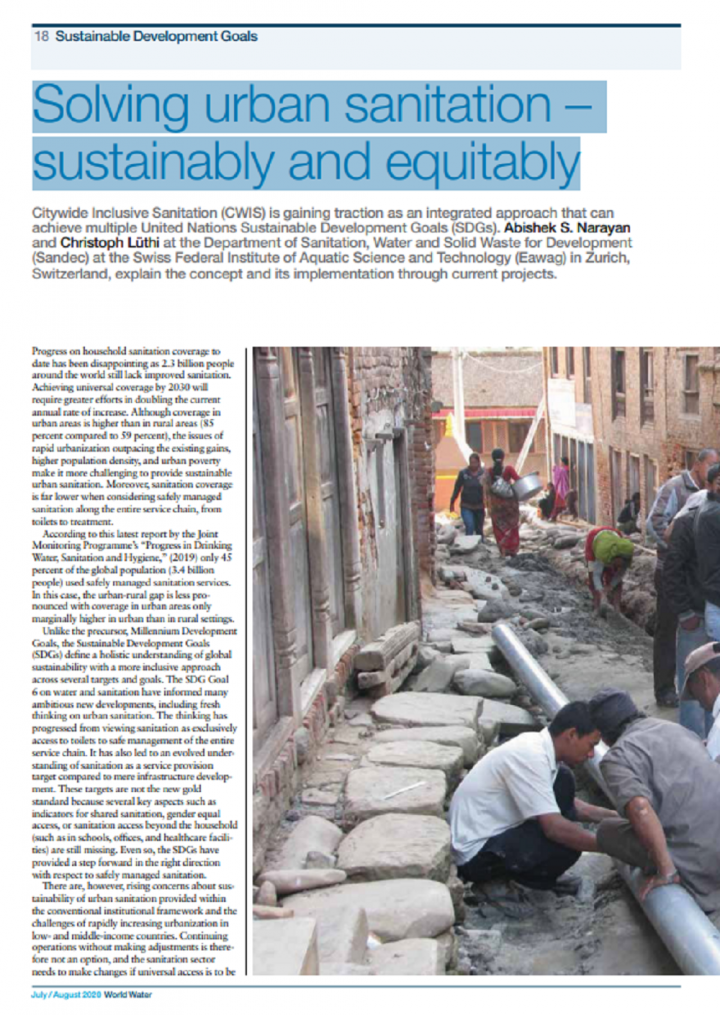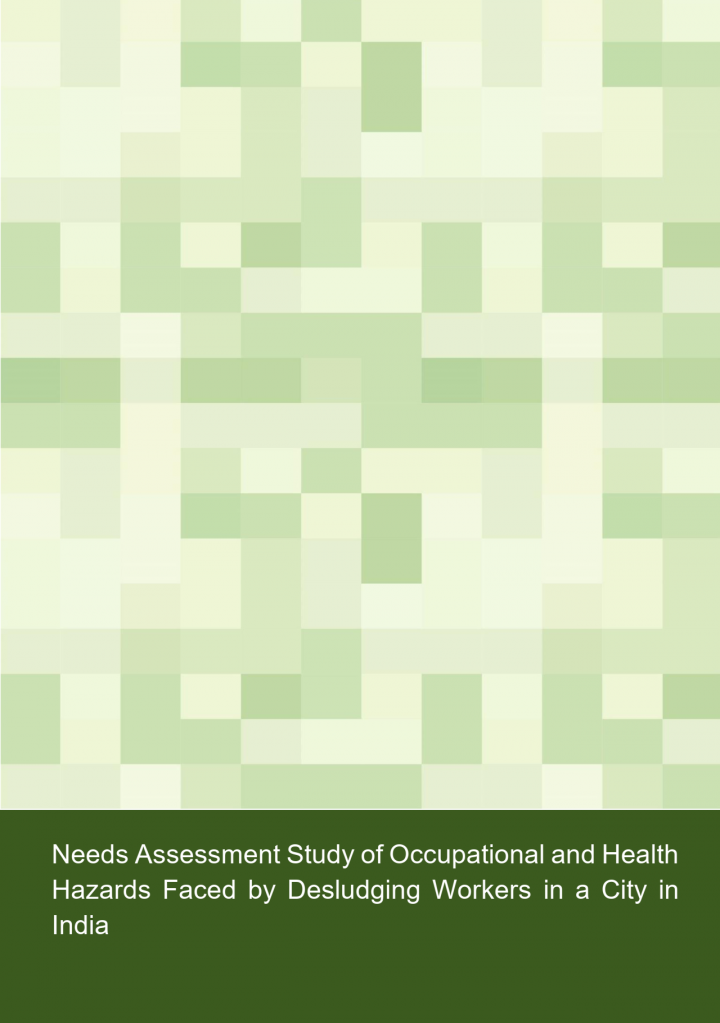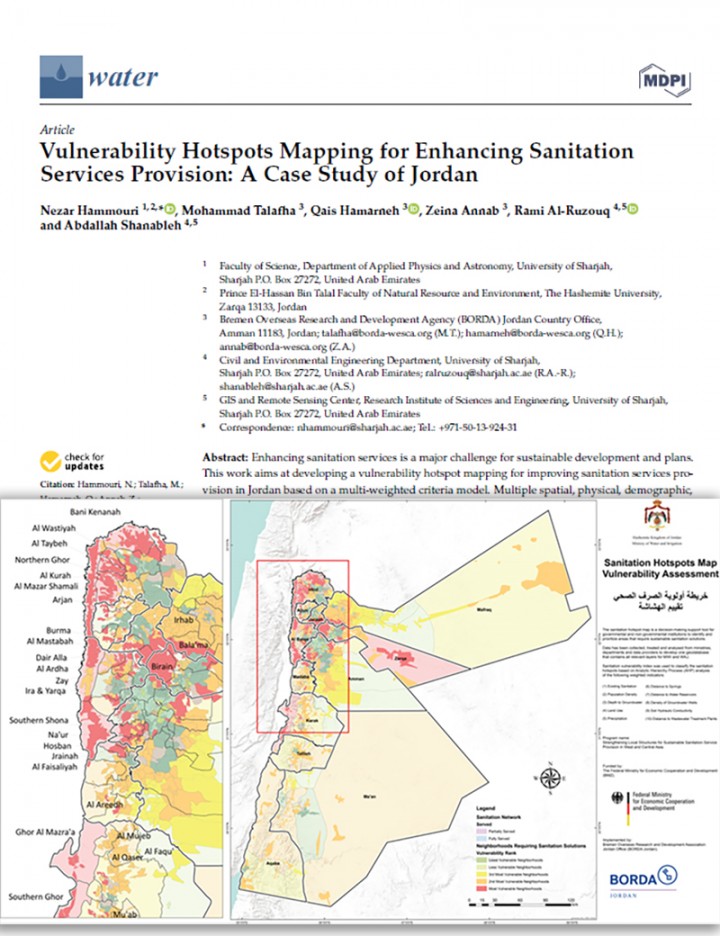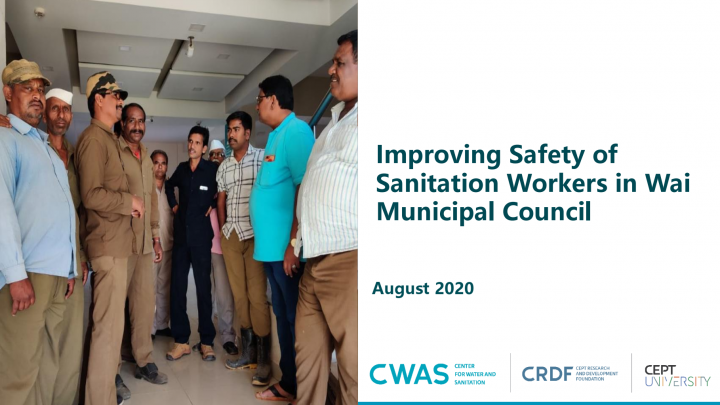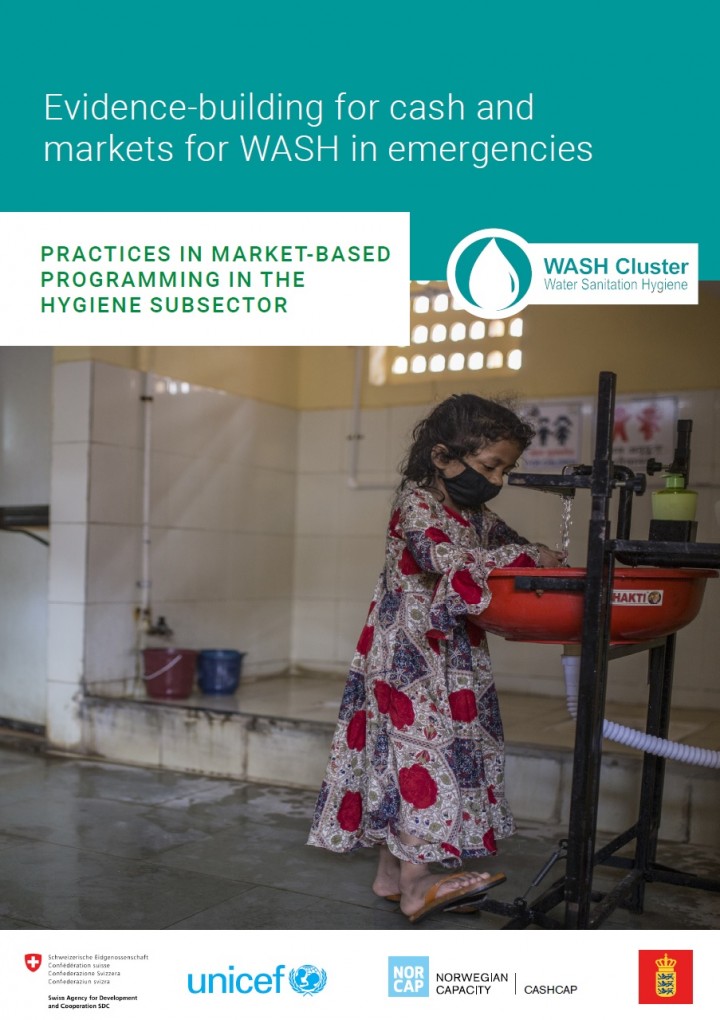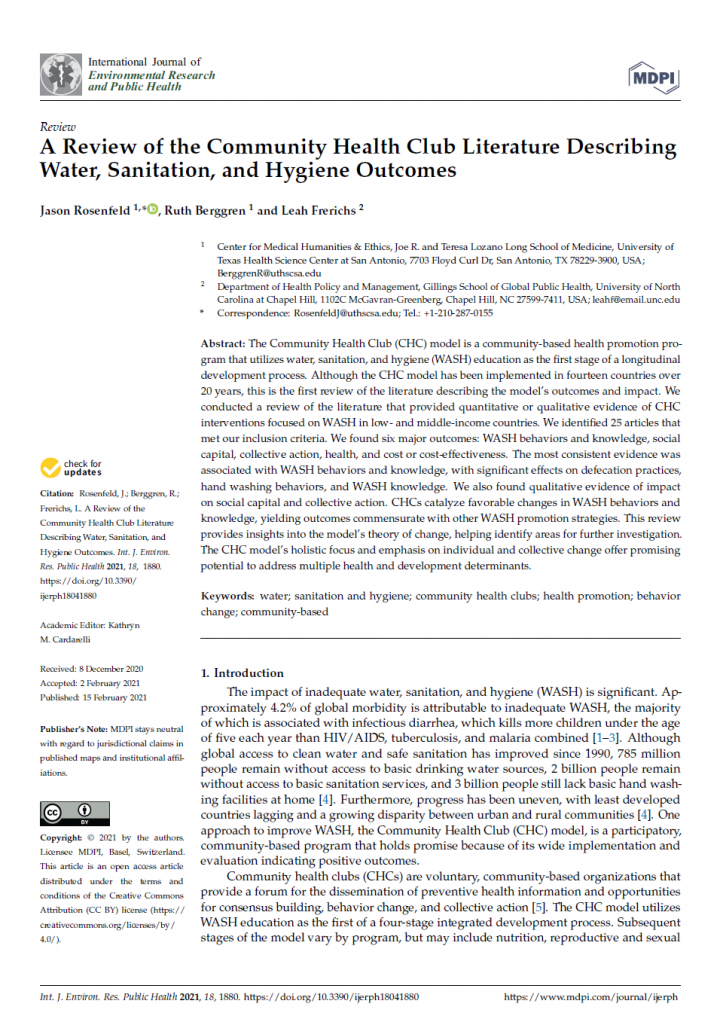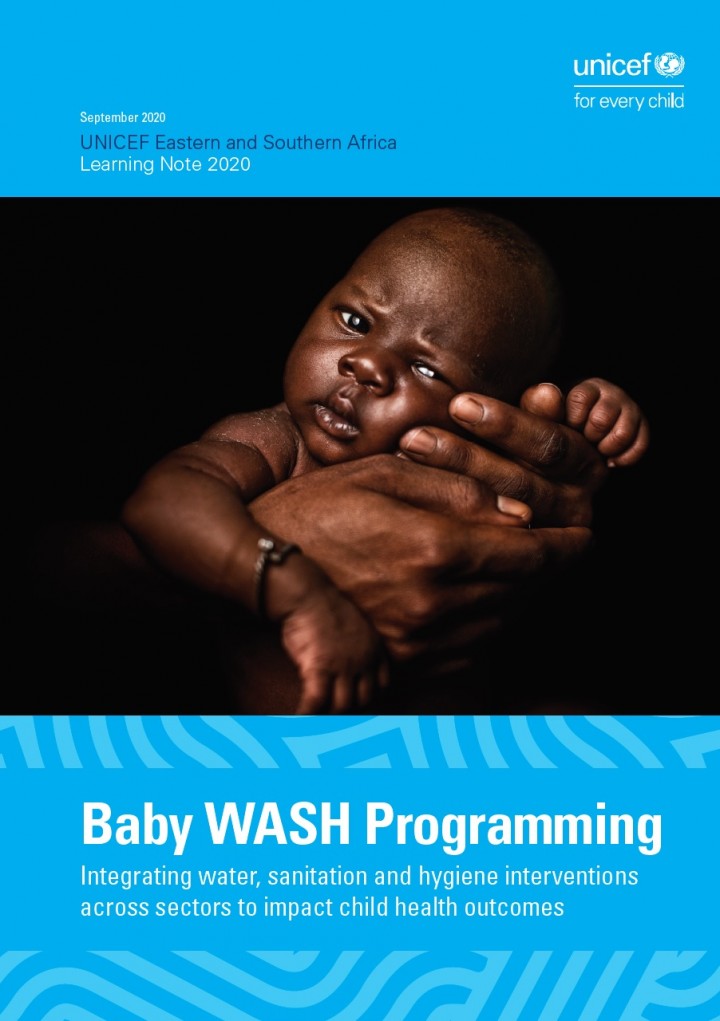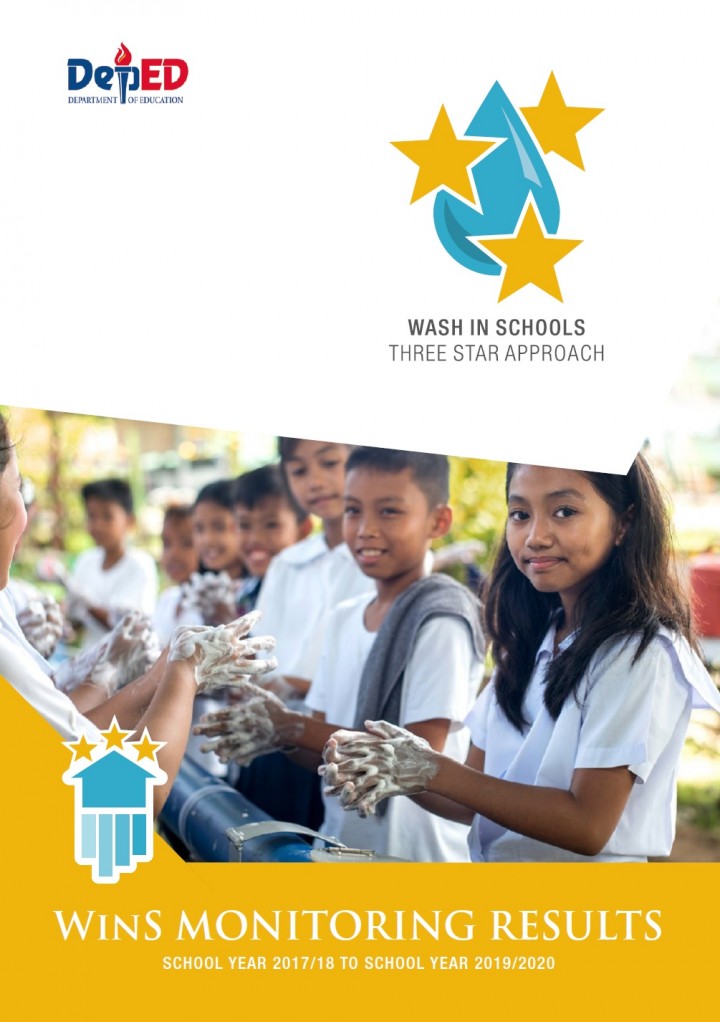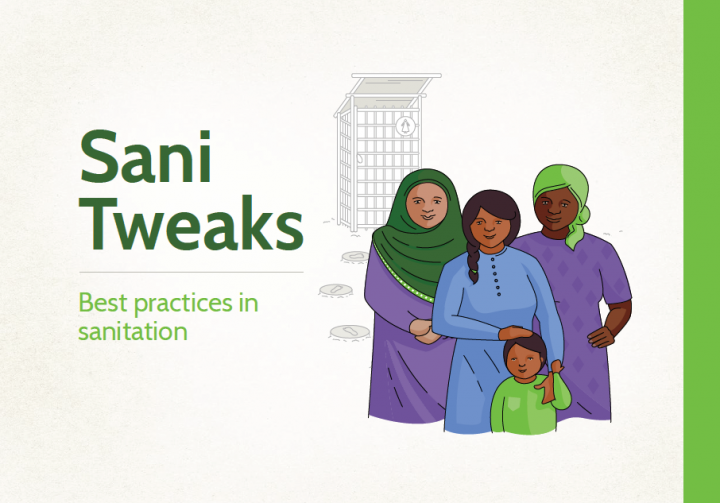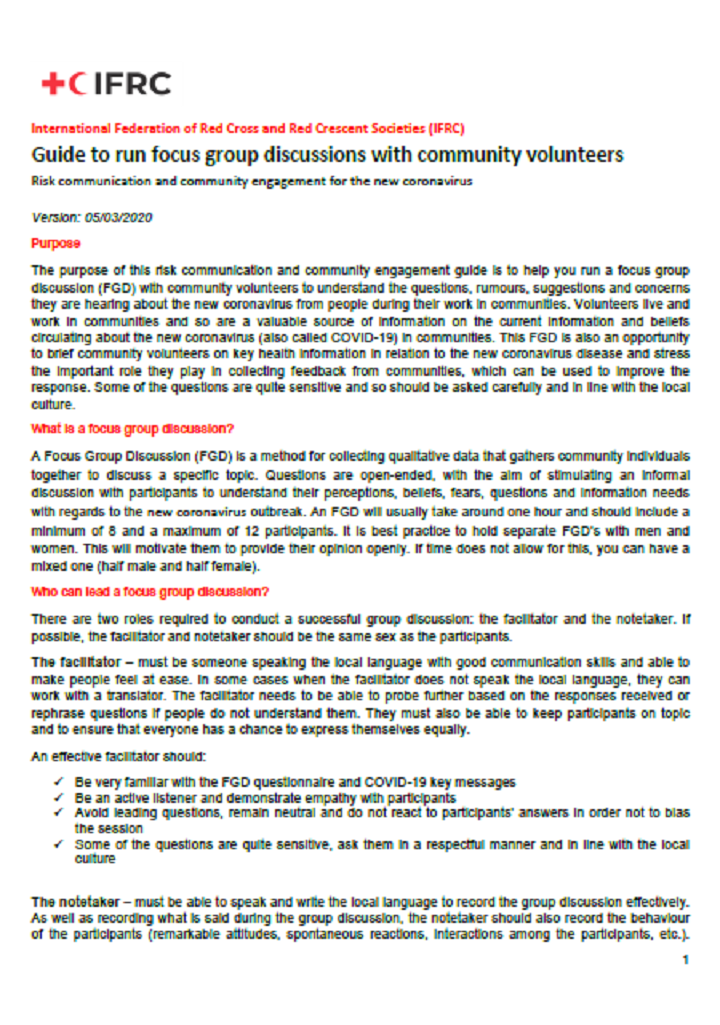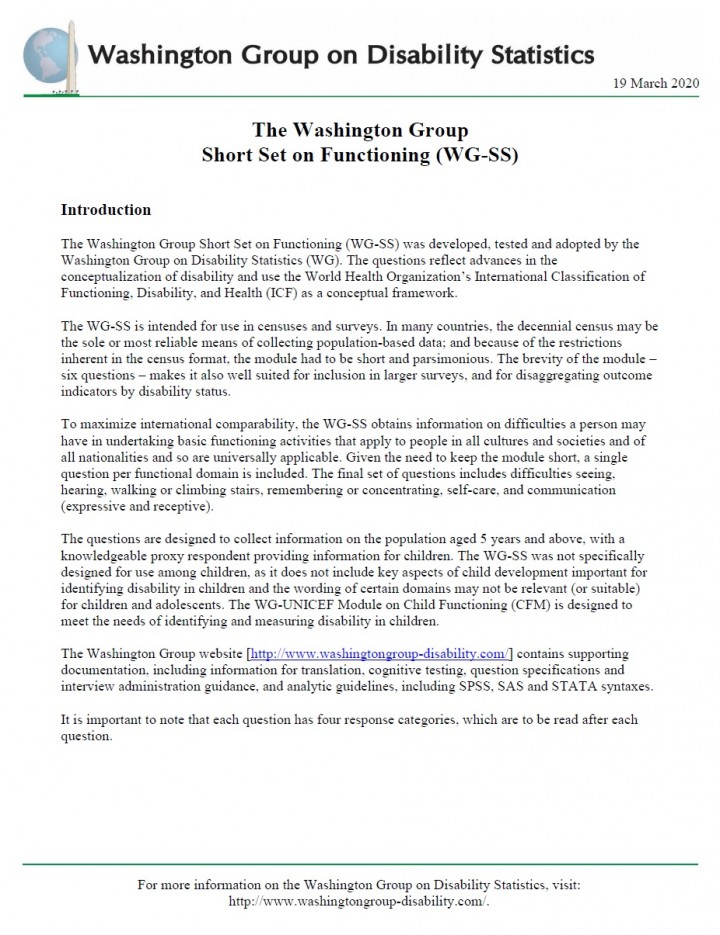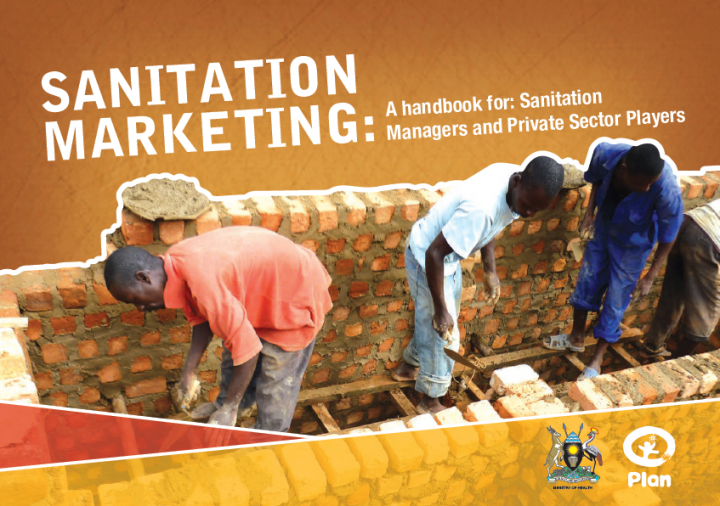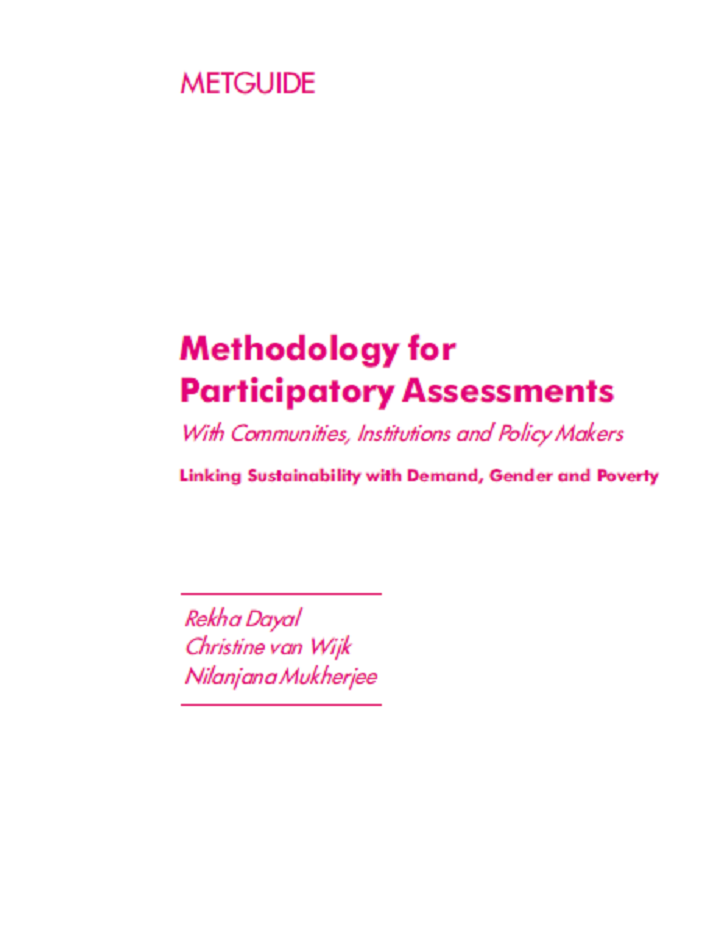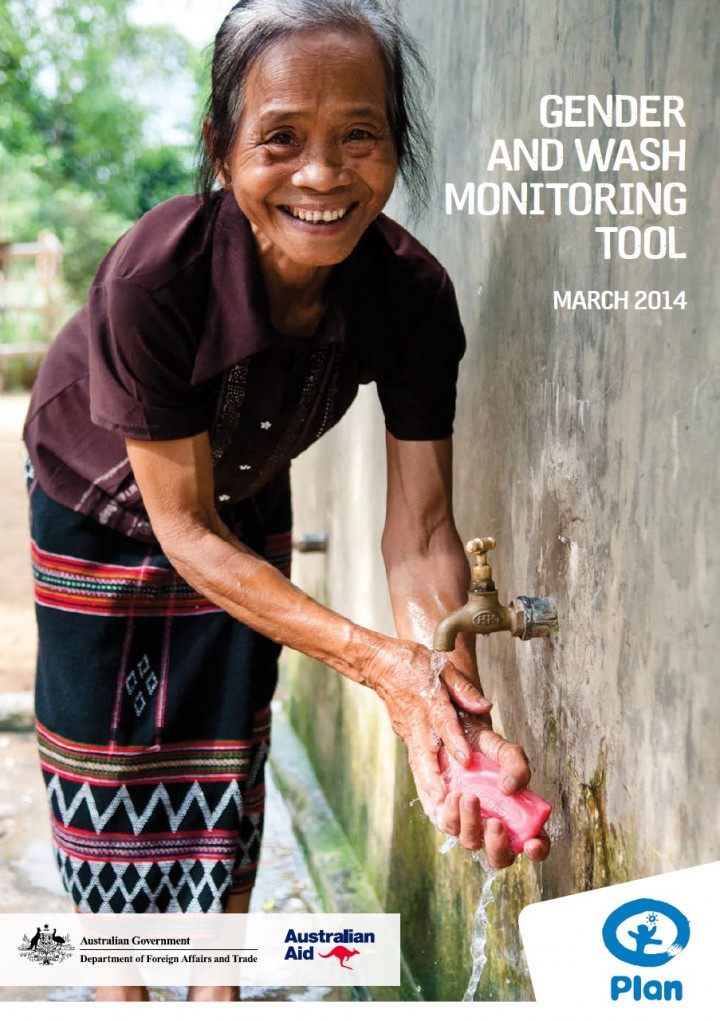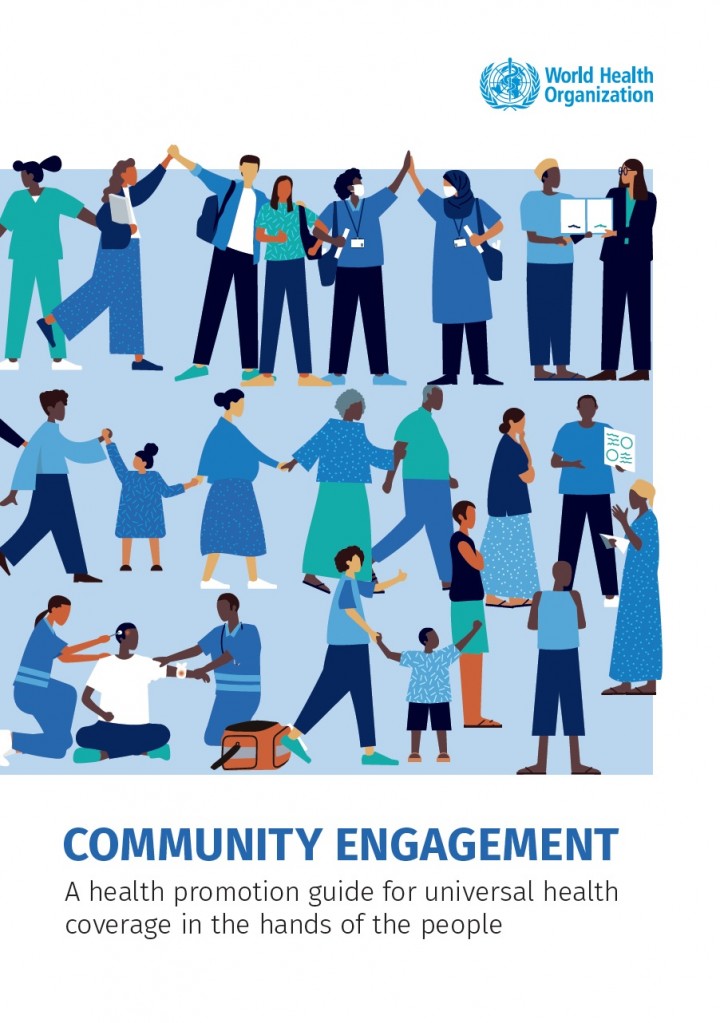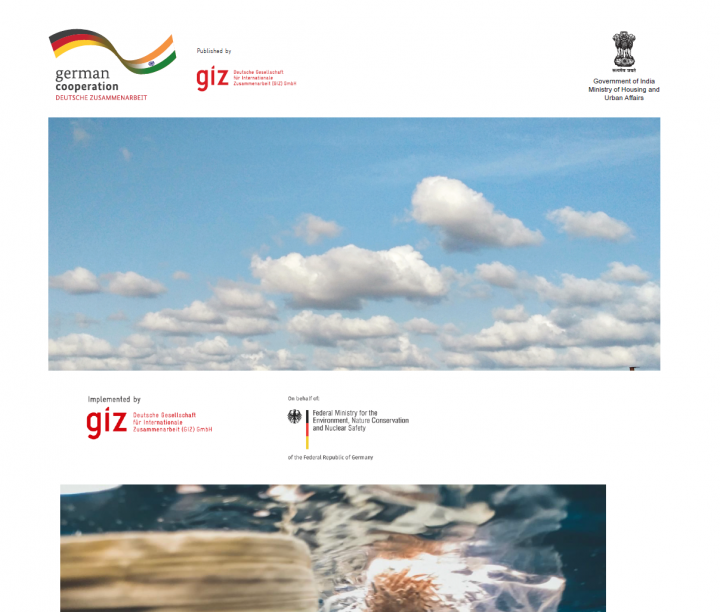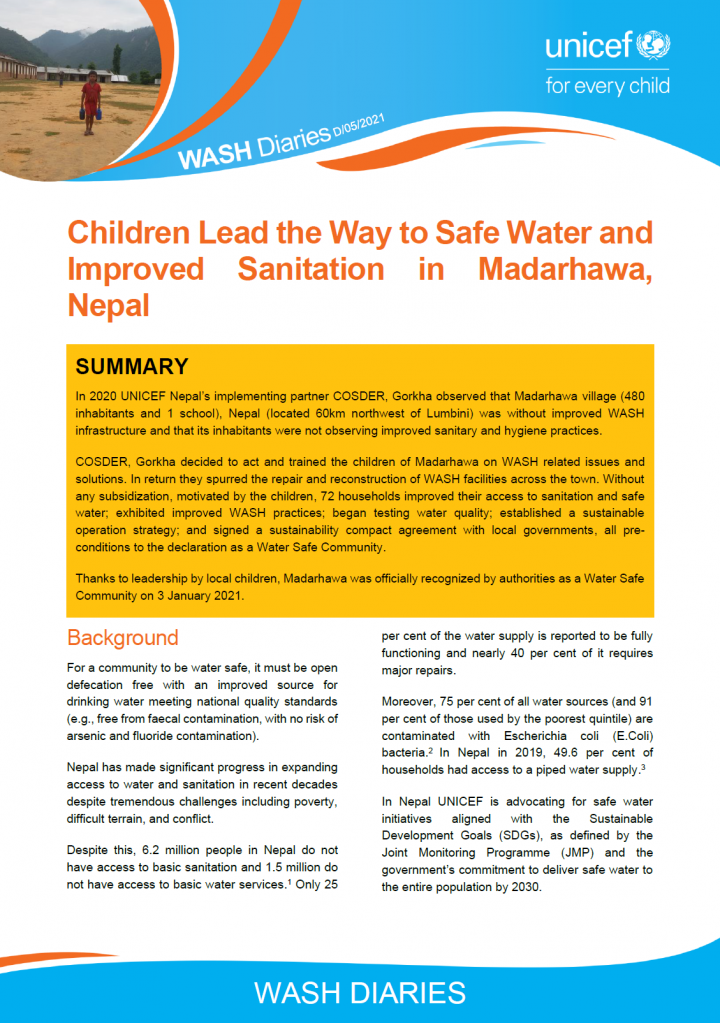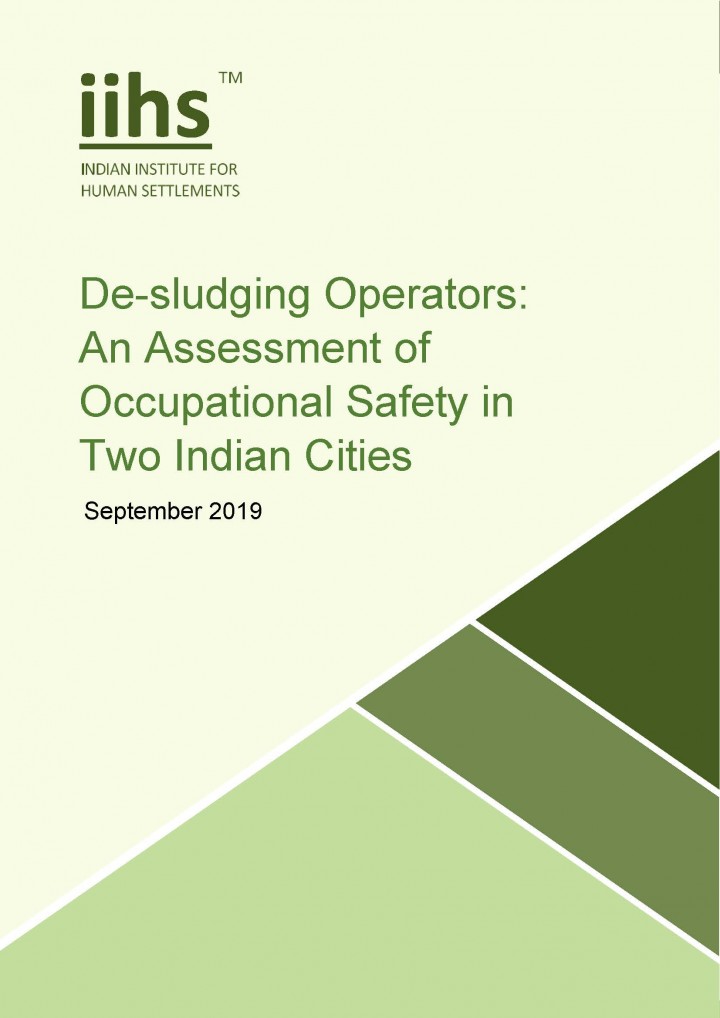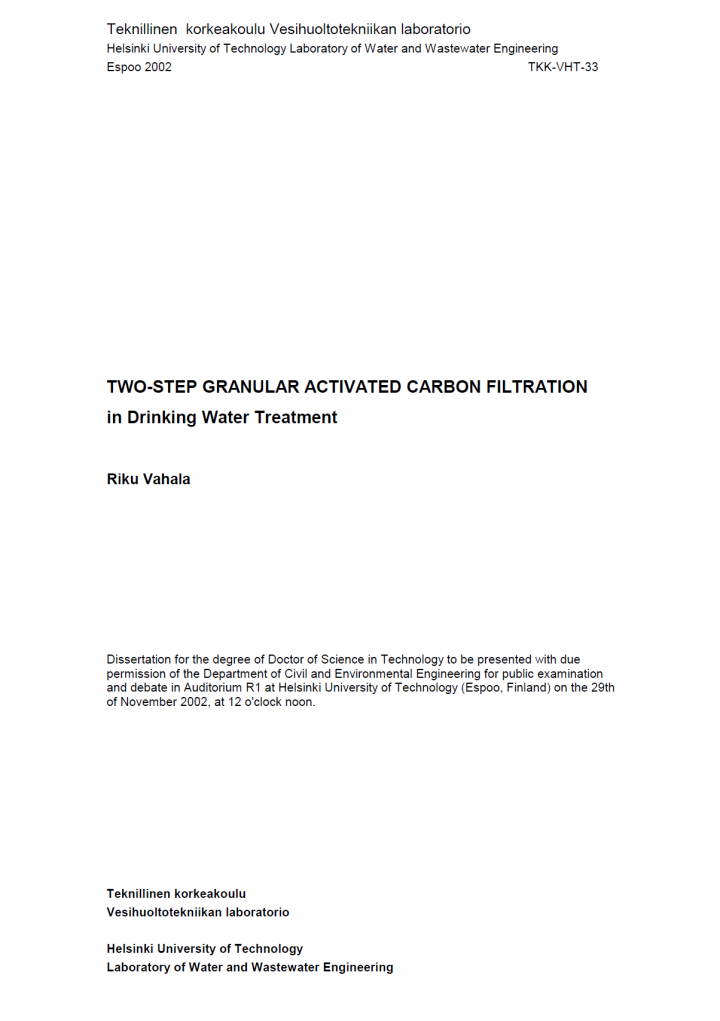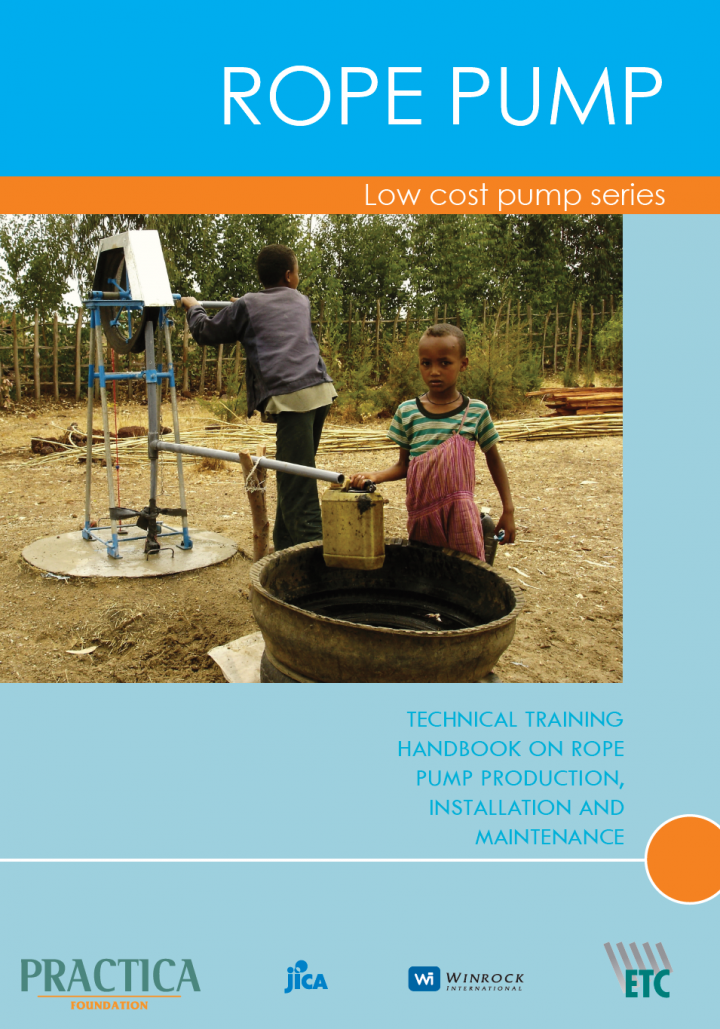Searching for information on Sanitation Workers?
The Sanitation Workers Knowledge + Learning Hub is the best source for all current news, trends, articles and updates on sanitation workers rights around the world.
Water is one of the most important natural resources of the nation. Nepal has an abundance of water resources, including snowpacks, rivers, springs, lakes, and groundwater. Rivers, streams, lakes, reservoirs, springs, and groundwater are the major sources of drinking water. Tap or piped water, tube wells or hand pumps, covered or uncovered wells, spout water, rainwater collection, and river or …
It explains the concept of Citywide Inclusive Sanitation (CWIS) with the Manila Principles on CWIS. It further gives concrete case studies for each of the principles. CWIS is the paradigm shift in approach to urban sanitation, one which encompasses many key elements that are now widely accepted at gold standard.
Safe collection, handling and transport of fecal sludge is an integral part of septage management. Limited attention has been paid to the safe collection, transport, disposal and treatment of human excreta from septic tanks. Motorised emptying and transport involves a truck with a standalone or mounted vacuum pump along with a storage tank that is used to empty and transport septage. Typically, …
Enhancing sanitation services is a major challenge for sustainable development and plans.
This work aims at developing a vulnerability hotspot mapping for improving sanitation services provision
in Jordan based on a multi-weighted criteria model. Multiple spatial, physical, demographic,
social, economic, and sanitation data were collected and compiled using GIS. We also considered
experts’ …
In 2018, Wai was chosen as one of the eight cities across the globe for the City Wide Inclusive Sanitation Program (CWIS) funded by Bill & Melinda Gates Foundation (BMGF). The municipal council of Wai (WMC) with support from Center of Water and Sanitation (CWAS), CRDF, CEPT University (CEPT) is aiming to implement the CWIS goals
and principles in Wai.
Under the CWIS framework, one of the …
This report presents an overview of practices related to the use of market support and cash and voucher assistance (CVA) modalities for hygiene in humanitarian crises. These market-based approaches can have a number of advantages, such as improving the efficiency and effectiveness of emergency hygiene response while also supporting the existing local market systems that will continue to deliver …
The Community Health Club (CHC) model is a community-based health promotion program that utilizes water, sanitation, and hygiene (WASH) education as the first stage of a longitudinal development process. Although the CHC model has been implemented in fourteen countries over 20 years, this is the first review of the literature describing the model’s outcomes and impact. We conducted a review of …
Studies have shown that agencies are failing to properly consult or collect and act on feedback from the users of the latrines they build, leading many people – especially women and girls – to stop using those latrines as they find them inaccessible, unsuitable and/or unsafe. Consequently, this increases public health risks in emergency situations.
To address this, the Oxfam WASH team has …
The purpose of this risk communication and community engagement guide is to help you run a focus group discussion (FGD) with community volunteers to understand the questions, rumours, suggestions and concerns they are hearing about the new coronavirus from people during their work in communities. Volunteers live and work in communities and so are a valuable source of information on the current …
The WG Short Set of six questions on functioning for use on national censuses and surveys was developed, tested and adopted by the Washington Group on Disability Statistics (WG). The questions reflect advances in the conceptualization of disability and use the World Health Organization’s International Classification of Functioning, Disability, and Health (ICF) as a conceptual framework.
In a …
In order to address sanitation challenges, accelerate access and sustained use of latrines coupled with good hygiene practices such as hand washing Uganda’s Ministry of Health, together with Plan Uganda, has produced handbooks on sanitation marketing. The aim is to increase awareness and harness momentum for uptake of Sanitation Marketing among stakeholders such as government at policy making …
Plan International Australia (Plan Australia) would like to share the Gender and WASH Monitoring Tool (GWMT). Promoting gender equality demands significant attention in every WASH intervention as gender relations are integral to the effectiveness and sustainability of WASH. The literature suggests that measuring change in the context of gender relations presents ongoing challenges for monitoring …
WHO has defined community engagement as “a process of developing relationships that enable stakeholders to work together to address health-related issues and promote well-being to achieve positive health impact and outcomes”. There are undeniable benefits to engaging communities in promoting health and wellbeing. At its core, community engagement enables changes in behaviour, environments, …
Current estimates based on a limited number of modelling studies suggest that globally some 9-10 million tonnes of plastics enter the oceans annually to become marine litter. Moreover, it is estimated that 15-20% of all plastics are entering oceans via riverine ecosystems of which 90% are contributed by 10 of the world’s most polluting rivers only. Two of these rivers are located in India, …
In 2020 UNICEF Nepal’s implementing partner COSDER, Gorkha observed that Madarhawa village (480 inhabitants and 1 school), Nepal (located 60km northwest of Lumbini) was without improved WASH infrastructure and that its inhabitants were not observing improved sanitary and hygiene practices. COSDER, Gorkha decided to act and trained the children of Madarhawa on WASH related issues and solutions. …
Safe collection, handling and transport of fecal sludge is an integral part of septage management. Limited attention has been paid to the safe collection, transport, disposal and treatment of human excreta from septic tanks. A study was conducted in two cities in India to understand the current desludging practices, the underlying reasons for current occupational practices and hazards, relevance …
In the treatment of Finnish surface waters, the main objective is to reduce natural organic matter (NOM) before the water is disinfected. In many treatment plants, granular activated carbon (GAC) filtration is applied for the enhanced removal of NOM after conventional treatment. The aim of this study was to assess the performance of two-step GAC filtration in NOM removal from cold humic lake …
Module 1 creates awareness on the technology and applicability of the rope pump as a family water
pump and provides a road-map for implementation. It is meant for NGO’s, governments and implementing organisations considering the implementation of a rope pump production and installation project.
Module 2 describes the installation and maintenance procedures of the rope pump. This module is …

